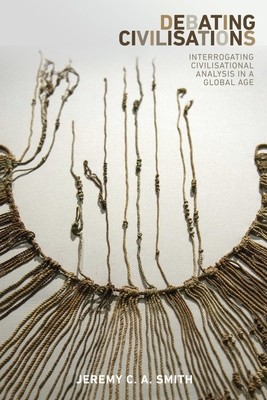
- We will send in 10–14 business days.
- Author: Jeremy C a Smith
- Publisher: Manchester University Press
- ISBN-10: 1526105284
- ISBN-13: 9781526105288
- Format: 15.6 x 23.4 x 1.4 cm, hardcover
- Language: English
- SAVE -10% with code: EXTRA
Reviews
Description
In Debating civilisations, Jeremy Smith offers an up-to-date evaluation of the re-emerging field of civilisational analysis, tracing its main currents and comparing it to rival paradigms such as Marxism, globalisation theory and postcolonial sociology. He suggests that civilisational analysis offers an alternative approach to understanding globalisation, focusing on the dense engagement of societies, cultures, empires and civilisations in human history. Building on Castoriadis's theory of social imaginaries, he argues that civilisations are best understood as creations made from routine contacts and connections carried out by anonymous actors over the course of long periods of time. He illustrates this argument through case studies of modern Japan, the Pacific and post-Conquest Latin America (including the revival of indigenous civilisations), exploring discourses of civilisation outside the West, within the context of growing Western imperial power.
EXTRA 10 % discount with code: EXTRA
The promotion ends in 7d.04:42:21
The discount code is valid when purchasing from 10 €. Discounts do not stack.
- Author: Jeremy C a Smith
- Publisher: Manchester University Press
- ISBN-10: 1526105284
- ISBN-13: 9781526105288
- Format: 15.6 x 23.4 x 1.4 cm, hardcover
- Language: English English
In Debating civilisations, Jeremy Smith offers an up-to-date evaluation of the re-emerging field of civilisational analysis, tracing its main currents and comparing it to rival paradigms such as Marxism, globalisation theory and postcolonial sociology. He suggests that civilisational analysis offers an alternative approach to understanding globalisation, focusing on the dense engagement of societies, cultures, empires and civilisations in human history. Building on Castoriadis's theory of social imaginaries, he argues that civilisations are best understood as creations made from routine contacts and connections carried out by anonymous actors over the course of long periods of time. He illustrates this argument through case studies of modern Japan, the Pacific and post-Conquest Latin America (including the revival of indigenous civilisations), exploring discourses of civilisation outside the West, within the context of growing Western imperial power.


Reviews